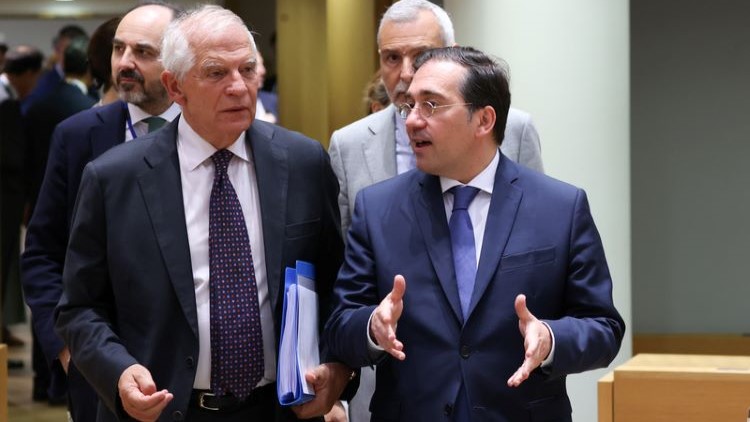The Diplomat
The director of the Cabinet of the Presidency of the Government, Óscar López, will appear this Thursday in Congress to present the 2022 National Security report, which warns of an increase in disinformation campaigns in Spain attributed to “the Kremlin orbit”.
The report was approved before Pedro Sánchez’s government reached a pact with Junts, at a time when the Catalan justice system is investigating alleged Russian links to independence.
Specifically, López will appear before the Joint Committee on National Security to explain this work, which was approved on 12 April 2023 at a meeting of the National Security Council chaired by King Felipe VI at the Zarzuela Palace. The president, Pedro Sánchez, twelve other members of the Council of Ministers and several senior members of the Executive, such as the director of the National Intelligence Centre (CNI), Esperanza Casteleiro, also took part in the meeting, reports Europa Press.
The document warns of disinformation campaigns as one of the elements of the hybrid strategies of state and non-state actors and stresses the need to detect them. Despite the difficulty of attribution, the report points directly to the Kremlin as the author of disinformation tools, with support for extremist movements or attacks on the credibility of public institutions.
The study also reflects an increase in cyberattacks on critical infrastructures related to the transport sector, among others, “from NATO countries by pro-Russian actors”. In fact, it considers disinformation campaigns and cybersecurity to be among the greatest risks for Spain over the next five years.
He also refers to the presence of foreign intelligence services in Spain and reveals a sharp drop in their activity in 2022 – the lowest in the last ten years – as a result of the expulsion of 27 Russian diplomats from Spain in the framework of the measures agreed in the European Union.
López’s appearance will take place a week after Congress gave the green light to the Amnesty Law for those involved in the ‘procés’, in whose text Junts managed to include an amendment that would protect Puigdemont in the framework of the ‘Voloh case’.
The Catalan justice system is investigating the so-called ‘Voloh case’ to clarify the alleged contacts of the Catalan pro-independence movement with Moscow, which, according to the case, would be sponsored by the former Catalan president Carles Puigdemont. He could have incurred in crimes of treason and against the peace or independence of the state and related to national defence, which however are already included in the text of the law after the changes agreed between the government, the PSOE and Junts.
Robles warns of Russian threat
For her part, the Minister of Defence, Margarita Robles, has drawn the attention of Spanish society to what she describes as a “total” threat from Russia, because she believes that “the danger is very close”.
In an interview published yesterday in La Vanguardia, Robles claims that Vladimir Putin is “an enormous threat to neighbouring countries, but also to the international community as a whole”. “Nowadays, a ballistic missile can reach Spain from Russia”, he adds.
“I would like to call the attention of Spanish society because sometimes I have the perception that we are not aware of the enormous danger that exists at the moment. And not only in Ukraine, but also in Gaza and the Sahel, where I am very pessimistic about the situation”, she says.
On the call for EU leaders to rearm, Robles says the “threat is total and absolute”. He explains: “You only have to listen to Putin’s latest statements, in which he talks about the possibility of nuclear aggression. Europe has to be aware that the danger is very close; it is not a pure hypothesis, it is real. The countries bordering Russia are well aware of this; perhaps those of us in the south are not.
However, the minister opposes France’s idea of sending soldiers to Ukrainian territory: “We don’t understand, like most NATO countries, that it is appropriate to send troops to Ukraine because that would mean an escalation. And at the moment we must avoid escalation at all costs”.
“Sending troops would mean a major escalation and even the possibility of the war spreading. Spain is committed to Ukraine, but we do not give it as much publicity as other countries do”, adds Robles, while stressing that Spanish troops “are not and will not be in Ukraine”.
Finally, she stresses that Spain has never considered the EU having its own nuclear arsenal.







